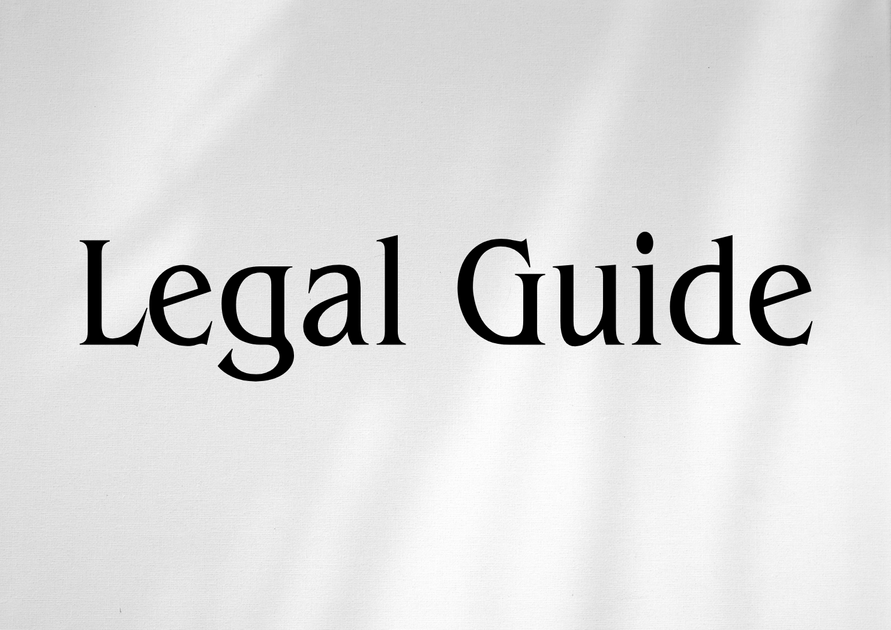Introduction
As the United Arab Emirates (UAE) solidifies its position as a global business hub, arbitration has emerged as the preferred method of dispute resolution for local and international entities alike. Recent regulatory developments, specifically the Federal Law No. 6 of 2018 on Arbitration (the “UAE Arbitration Law”), have harmonized local practices with global standards. However, there is a heightened need for parties and practitioners to understand the legal ramifications of party default in arbitration, especially in light of evolving legal frameworks and the UAE law 2025 updates.
This article aims to deliver an authoritative legal analysis of party default in UAE arbitration. It offers practical insights for businesses, executives, human resources departments, and legal consultants operating within the UAE. By dissecting the latest regulations, comparing old and new frameworks, and providing actionable compliance strategies, this article ensures readers are equipped to anticipate risks and protect their interests in arbitration proceedings.
Table of Contents
- Overview of Arbitration Law in the UAE
- What Constitutes Default of Parties in Arbitration?
- Key Legal Provisions Governing Default in UAE Arbitration
- Comparing Previous and Current Legal Frameworks
- Legal Consequences of Default in UAE Arbitration
- Case Studies and Practical Implications
- Risks of Non-Compliance and Mitigation Strategies
- Best Practices for Compliance and Proactive Arbitration Management
- Conclusion and Future Outlook
Overview of Arbitration Law in the UAE
The Evolution of UAE Arbitration Law
Arbitration in the UAE has undergone significant transformation, culminating in the adoption of the UAE Arbitration Law (Federal Law No. 6 of 2018). The law incorporates key principles of the UNCITRAL Model Law on International Commercial Arbitration, promoting efficiency, party autonomy, and procedural fairness. This has positioned the UAE as an arbitration-friendly jurisdiction, with further updates anticipated under UAE law 2025 updates aimed at streamlining processes and enhancing enforceability.
Key Regulatory Authorities and Resources
- UAE Ministry of Justice: Oversees the implementation of federal dispute resolution statutes and supervises arbitral institutions.
- UAE Government Portal: Provides access to official versions of laws, ministerial resolutions, and federal decrees related to arbitration.
- Federal Legal Gazette: The authoritative source for legislative updates and the publication of new federal laws affecting arbitration.
Visual Suggestion: Consider a process flow diagram that maps out the steps in a UAE arbitration proceeding, highlighting junctures where party default may occur.
What Constitutes Default of Parties in Arbitration?
Definition and Scope
In the context of UAE arbitration, a “default” refers to a party’s failure to fulfill procedural duties or respond to arbitration proceedings. Common forms of default include:
- Failure to submit a statement of claim or defense within stipulated timeframes
- Absence from hearings or meetings despite due notice
- Neglecting to comply with tribunal orders or directions
The concept is recognized and outlined in Articles 33–36 of the UAE Arbitration Law, reflecting obligations for both claimants and respondents. Recognizing and addressing defaults promptly is critical for maintaining the efficiency and integrity of arbitration proceedings.
Significance for UAE Businesses
Defaults in arbitration can profoundly affect legal strategies, cost exposure, and enforceability of awards. For companies operating in or with the UAE, understanding the consequences and legal remedies for default is vital for risk management and seamless dispute resolution.
Key Legal Provisions Governing Default in UAE Arbitration
Federal Law No. 6 of 2018 on Arbitration
The cornerstone legal framework, Federal Law No. 6 of 2018, details the regime for dealing with party defaults. Notable Articles include:
- Article 33 (Default by Claimant): If the claimant fails to submit the Statement of Claim as required, the tribunal may terminate the proceedings, unless justified reasons are presented.
- Article 34 (Default by Respondent): If the respondent fails to submit the Statement of Defence, the tribunal continues the proceedings without treating such failure as an admission of the claimant’s allegations.
- Article 36 (Default in Appearance or Document Submission): If either party fails to attend hearings or produce documentary evidence, the tribunal may proceed and make an award based on the available record.
Noteworthy Ministerial Guidelines and Institutional Rules
Arbitral institutions in the UAE, such as the Dubai International Arbitration Centre (DIAC) and Abu Dhabi Global Market Arbitration Centre (ADGMAC), issue rules that supplement statutory provisions. These institutional rules often echo federal law but introduce strict timelines and further procedural flexibility, particularly regarding notice and default mechanisms.
Practical Tip: It is essential for parties to be aware of both institutional and statutory frameworks to avoid inadvertent default.
Comparing Previous and Current Legal Frameworks
To appreciate the growing sophistication of UAE arbitration law, it is instructive to compare the current legal framework under Federal Law No. 6 of 2018 with pre-2018 rules, particularly those set out in the UAE Civil Procedures Law (Federal Law No. 11 of 1992) and prior DIAC rules.
| Aspect | Pre-2018 (Civil Procedures Law & Old DIAC Rules) | Post-2018 (Federal Law No. 6 of 2018 & New Institutional Rules) |
|---|---|---|
| Legislative Framework | Fragmented; reliant on general civil procedure principles | Unified, comprehensive arbitration law aligned with UNCITRAL |
| Default by Claimant | No express provision; left to tribunal’s discretion | Proceedings terminated unless justified (Art. 33) |
| Default by Respondent | Ambiguous; inconsistent tribunal practice | Proceedings continue; default not deemed admission (Art. 34) |
| Absence at Hearings | No explicit guidance; risk of annulment for lack of due process | Tribunal may proceed based on available record (Art. 36) |
| Enforceability | Uncertainty due to procedural gaps | Clearer enforcement regime under UAE courts |
| Timeframes and Notice | Variable, often causing delays | Standardized timelines; institutional flexibility |
Visual Suggestion: A penalty comparison chart demonstrating the repercussions of default under the old and new legal regimes can provide further clarity and engagement for readers.
Legal Consequences of Default in UAE Arbitration
Implications for Claimants and Respondents
The UAE Arbitration Law prescribes specific outcomes following a party’s default, which can have lasting legal and commercial impacts:
- Termination of Proceedings for Claimants: A claimant’s failure to submit a statement or attend hearings can result in closure of the arbitration, leading to loss of time and costs incurred thus far.
- Proceeding in Absence for Respondents: If the respondent defaults, the tribunal may proceed without presuming the claimant’s allegations are true, upholding the principle of fair hearing and ensuring an enforceable award.
- Decision Based on Available Record: If either party defaults on providing evidence or attending a necessary session, arbitral tribunals are empowered to render awards solely based on existing documentation and records.
Enforceability and Set-Aside Risks
UAE courts scrutinize awards issued following default for compliance with procedural fairness. An award may be set aside if the default resulted from faulty notice, lack of opportunity to present a case, or violation of public policy, per Article 53 of Federal Law No. 6 of 2018. This underscores the necessity for tribunals to document due process meticulously.
Practical Takeaway for Parties
Parties should proactively monitor procedural deadlines, maintain reliable communication channels, and engage legal counsel throughout arbitration to mitigate the risk of inadvertent default and preserve their rights to argue or present evidence.
Case Studies and Practical Implications
Hypothetical Case Study 1: Claimant Default
Scenario: Company A initiates arbitration against Company B for breach of a distribution agreement but fails to provide its Statement of Claim by the date stipulated in the procedural timetable.
Legal Outcome: As per Article 33, the tribunal informs Company A of its default and grants a short grace period. No submission is received. The tribunal is required to terminate the proceedings unless Company A provides a justified cause for the delay. Company A is liable for lost costs and will need to begin anew if it wishes to pursue its claim.
Hypothetical Case Study 2: Respondent Default
Scenario: Company C is served with notification of arbitration by Company D but fails to file a Statement of Defence within the prescribed period or attend scheduled hearings.
Legal Outcome: The tribunal continues with the proceedings and examines Company D’s evidence, ensuring it does not treat Company C’s absence as an automatic admission of liability. An award is rendered based on the record. Upon enforcement, UAE courts review whether Company C received due process and adequate notice before upholding or setting aside the award.
Practical Tip: Both claimants and respondents should maintain clear records of all procedural communications and consider appointing local counsel familiar with UAE institutional and statutory arbitration practices.
Visual Suggestion:
Insert a compliance checklist table highlighting key deadlines, required submissions, and consequences of default for both parties.
| Action Item | Party Responsible | Deadline | Consequence of Default |
|---|---|---|---|
| File Statement of Claim | Claimant | As set by Tribunal or Rules | Proceedings terminated (Art. 33) |
| File Statement of Defence | Respondent | Typically within 30 days | Proceedings continue without default being treated as admission (Art. 34) |
| Attend Hearings | Both | As scheduled | Tribunal proceeds ex parte (Art. 36) |
| Submit Documentary Evidence | Both | Per schedule | Award rendered based on record (Art. 36) |
Risks of Non-Compliance and Mitigation Strategies
Legal and Financial Exposure
Party defaults can result in substantial legal and reputational risks:
- Loss of Right to Present Case: Failure to participate can permanently waive the right to put forward evidence or arguments.
- Potential Award Annulment: Awards may face challenge in UAE courts if due process is compromised, resulting in wasted costs and potential reputational harm.
- Increased Costs: Defaults often prolong proceedings, escalating legal fees and operational disruption for businesses.
Compliance Strategies
To avoid the above risks, UAE-based organizations and foreign investors should:
- Implement internal compliance protocols to monitor arbitral deadlines
- Appoint an experienced arbitration coordinator or legal counsel in the UAE
- Regularly update contact details and communication channels with the tribunal
- Document all communications to form an audit trail of compliance
Visual Suggestion: Include a “Best Compliance Practice” diagram showing key touchpoints in the arbitration process.
Best Practices for Compliance and Proactive Arbitration Management
Internal Procedures and Training
Businesses should institutionalize regular training for legal and operational teams to ensure awareness of arbitral timelines and consequences of default. Custom checklists, deadline alerts, and senior-level accountability can substantially reduce the risk of costly oversights.
Engagement with Legal Counsel
Early and sustained engagement of specialist UAE arbitration counsel is recommended—from drafting arbitration agreements to navigating procedural stages during a dispute. Counsel can tailor strategies to local practices and minimize exposure to default-related risks.
Contractual Provisions and Risk Allocation
Consideration should be given to incorporating default provisions, choice of arbitral institution, and governing law within contract templates. This ensures predictability and expedites dispute management.
Conclusion and Future Outlook
The UAE’s evolving arbitration framework, particularly the enhancements brought by Federal Law No. 6 of 2018 and anticipated UAE law 2025 updates, reflects a heightened emphasis on procedural fairness, party autonomy, and enforceability. Defaults in arbitration proceedings—whether by claimants or respondents—have serious legal and commercial consequences, ranging from termination of claims to enforceability challenges.
Forward-looking businesses and practitioners in the UAE should prioritize process awareness, institutional compliance, and legal training to meet the challenges posed by party default. By adopting proactive measures and leveraging expert counsel, organizations can preserve their interests and minimize dispute resolution risks in the dynamic UAE legal environment.
For customized advice and practical guidance on managing arbitration processes and party default risks, connect with our specialized UAE arbitration team today.




